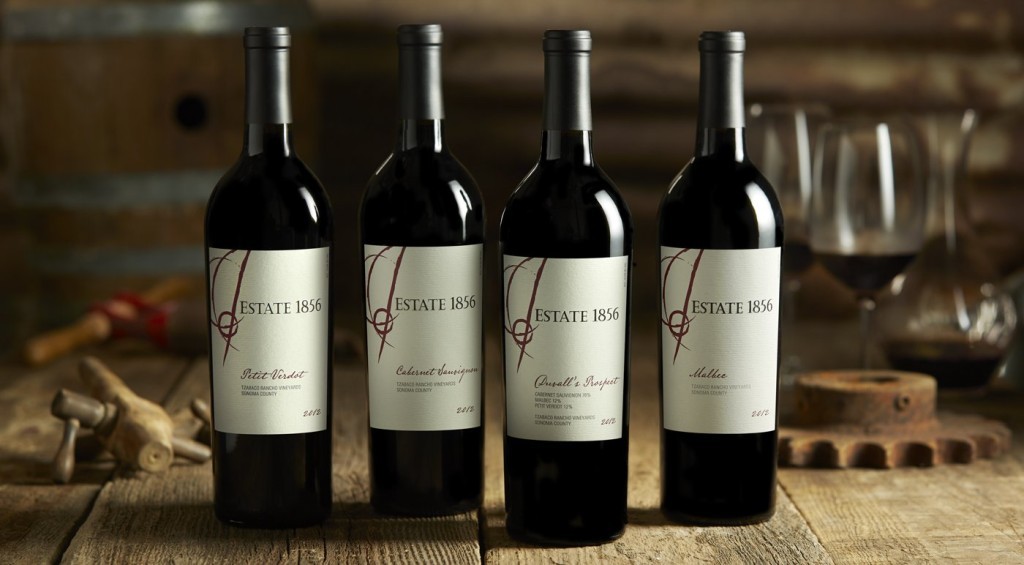Remarkable Patients With IC – Janice Schmidt, Winemaker at Estate 1856 Winery
(Editors Note – How could it be possible that a winemaker could also have interstitial cystitis? But then, how could an IC patient be a lead performer on Broadway or serve as an F18 Squadron commander? How about the secret service officer who served in the White House with active IC, the congressman or the federal judge? In 2016, we’ll be sharing the encouraging stories of remarkable IC patients to inspire both the newly diagnosed and IC veterans. These patients prove that there is hope! Would you like to share your story? Send an e-mail to: patientstories@ic-network.org)
 Since starting a small family winery five years ago, Janice Schmidt, winemaker at Estate 1856 Winery, has thrived. Last month, her 2013 Malbec & 2013 Petit Verdot received coveted Best of Class awards in at the San Francisco Chronicle Wine Competition, scoring above more than 6000 other wines. Her Duvall’s Prospect Bordeaux Blend won a Platinum Medal at the 2015 Critics Challenge International Wine Competition. She’s won double gold and gold medals in almost every competition she’s entered, including the most prestigious award in the Sonoma County wine industry, the Harvest Fair Sweepstakes Award for her 2010 Bordeaux Blend. Oh, and she has IC.
Since starting a small family winery five years ago, Janice Schmidt, winemaker at Estate 1856 Winery, has thrived. Last month, her 2013 Malbec & 2013 Petit Verdot received coveted Best of Class awards in at the San Francisco Chronicle Wine Competition, scoring above more than 6000 other wines. Her Duvall’s Prospect Bordeaux Blend won a Platinum Medal at the 2015 Critics Challenge International Wine Competition. She’s won double gold and gold medals in almost every competition she’s entered, including the most prestigious award in the Sonoma County wine industry, the Harvest Fair Sweepstakes Award for her 2010 Bordeaux Blend. Oh, and she has IC.
Janice Schmidt grew up in a family where bladder problems were common. Her sister, mother, aunt and grandmother have all been diagnosed with interstitial cystitis, vulvodynia, irritable bowel as well as other related conditions. She first experienced symptoms of frequency and urgency in high school and, like so many others, was given round after round of antibiotics and several urethral dilations. Her diagnosis was “urethral syndrome.”
In college, her symptoms waned. She attended UC Davis where she earned a Bachelor’s Degree in food science and a Master’s Degree in Enology (the study of wine making). After graduation, she began working as the Enologist at Jordan Winery. She also married the love of her life, Brian Schmidt and raised four boys.
Yet, through it all, there were many moments of pelvic pain. Ovarian cysts were common in her family. She lost one ovary shortly after she married. Vulvodynia, discomfort with intimacy and what felt like many recurring bladder infections were also frequent. Sometimes they found infection but many times they didn’t.
A big clue emerged when her younger sister also developed pelvic pain symptoms that were eventually diagnosed as “interstitial cystitis” and a name was finally found for the condition which had affected several generations of her family.
So how could an IC patient,
who traditionally can’t drink alcohol,
make great wine?
The answer lies in subtyping. If you remember from our Summer 2015 IC Optimist, we introduced five subtypes of IC proposed by Dr. Christopher Payne: (1) Hunner’s lesions, (2) Bladder Wall Injury, (3) Pelvic Floor, (4) Pudendal Neuralgia and (5) Functional Somatic Syndrome. The secret to Jan’s success may be related the incredibly sensitive nervous system she inherited from her mother, a hallmark of functional somatic syndrome.
IC patients with functional somatic syndrome struggle with more than just bladder sensitivity. They also have bowel sensitivity and IBS, stomach sensitivity, skin sensitivity and, to her benefit as a winemaker, acute smell sensitivity. She can smell and taste many subtle scents and undertones found in wine that have allowed her to become a master at wine blending. In fact, her blends have won the most awards.
Q&A With Janice Schmidt
 How has this disorder affected your work life?
How has this disorder affected your work life?
When I was younger and working for another winery, I was able to work full time because there was easy bathroom access right off of my laboratory. I also drank 8 glasses of water a day period to keep my bladder flushed. Now that I’m older, my gut has become a bit more challenging. There are some days, now, when I feel happy that I’m able to work from our ranch office.
What has helped you the most?
Because I have both a sensitive gut and bladder, I’ve found that diet management is essential. I need to avoid some very specific foods, such as spinach. In any form, raw or cooked, spinach irritates my gut and then irritates my bladder. Really spicy foods do the same. I also tend to avoid the common gas producing foods like Brussels sprouts. I’ve never been a coffee or tea drinker. I usually drink water, often with a couple of drops of a fruit juice for flavor. I recently learned that I am gluten intolerant and am now eating gluten free foods. That has helped my gut issues tremendously.
Does wine irritate your symptoms?
When I’m tasting for blending wine, I’m NOT swallowing anything. I’m spitting it out. We call that “production blending.” If I am in a social setting, I will only have a half glass of wine, which I chase with a glass of water to dilute the irritating effects of the alcohol. Even though my symptoms are very stable, I’ve learned not to push it. I enjoy the taste but I just don’t drink a lot.
I will only have a half glass of wine,
which I chase with a glass of water
to dilute the irritating effects of the alcohol.
What advice would you give to an IC patient who would like to enjoy a glass of wine?
Anytime you have a sensitive bladder, alcohol can be irritating so, first and foremost, you have to ask yourself if your bladder is up to the challenge. If you feel like you’d like to try some, start with a very small amount of a lower acid wine, such as: chardonnay (white wine) and merlot (red wine). Remember that some of the potentially sweet wines, such as Gewurtraminer or Riesling, often mask acid levels. Sparkling wines tend to be more acidic too because their grapes are picked when they aren’t fully ripe, thus the acid level is higher. If you’re sensitive to foods containing histamine, you’ll need to avoid red wines.
It’s okay to have that wine on ice, which can help dilute the alcohol and, of course, have a glass or two of water afterwards!
Are the wines you make at Estate 1856 low acid?
They are low to medium in acid level, very average for the industry. I think they could be worth trying! If you’re at a shop, it’s important to look at labels and, if you can, actually ask the winery how acidic their wines are.
What’s your favorite type of wine?
I love our Petit Verdot. It’s a red grape that produces a very lush, flavorful glass of wine, with tones of blackberry, dark cherry, chocolate, caramel and even mocha.
You’re known for your Bordeaux Blends. Tell us about that process.
Our ranch, Tzabaco Rancho Vineyards, grows several varietals of red and white grapes. Our Bordeaux Blends are usually varying percentages of Cabernet Sauvignon, Petit Verdot and Malbec. The Cabernet provides the foundation/structure for the blend, at about 76%. It’s a very blackberry and slightly herbal center. The Petit Verdot adds dark cherry and some floral notes while the Malbec adds a very nice blueberry component to it. Each harvest, the grapes are subtly different so I get to play with their various characteristics when I’m in blending mode. It’s the best part of my job.
You’ve won an impressive number of awards for your wines for what is a very young winery. What do you owe that success to?
Being the growers of the grapes, we can nurture the grapes from pruning to harvest to produce the best grapes possible. Then, of course, we have total control over making the wine. Most wineries don’t have this level of involvement. We are also a family driven farm and every one chips in to help when needed. My husband Brian and I co manage all aspects of the ranch, from picking the varieties we grow to the day to day grind of maintaining the plants and managing the water systems during these past years of drought. All four of our sons and their partners are involved in sustainable farming and/or winemaking. We would like to pass this farm to yet several more generations of the family.
Learn More About Estate 1856
If you have wine lovers in your family, check out the Estate 1856 Winery website – Estate1856.com! It’s a small family winery that produces about 1000 cases of wine a year. Yet, despite their small production numbers, has managed to win several very prestigious wine competitions. Let’s support our fellow IC’ers!


